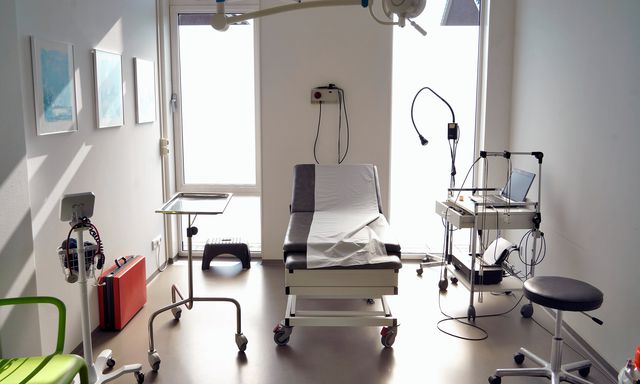This summer, the CDA’s Scientific Institute (WI) called for the private breeding of embryos for research, something the party has long opposed. In June, part of the parliamentary party in the Senate voted to repeal the mandatory five-day cooling-off period for abortions, a requirement that was built into the 1980s abortion law thanks to the CDA. And this Tuesday, the Senate, like the parliamentary faction, is expected to approve the provision of abortion pills through the general practitioner, in order to make abortions more accessible.
CDA is not numerically necessary for the majority, but it is always considered to be part of the conservative camp when it comes to questions of medical ethics. Is the party turning?
The report on embryo rearing is not yet a partisan position, but it has led to fierce debate in the party between supporters and opponents, including last month at the party conference in Nigerk, Gelderland. “You can see that the CDA is divided,” says theologian Andre Portman, who is the author of the report as a member of WI. The party has long accepted the practice of artificial fertilization (IVF), which has been a common practice for decades, but raising private embryos for scientific research is more delicate. The goal is not to achieve pregnancy, but for example research into improving IVF techniques or finding out about serious genetic diseases. Embryos are cultured for this research and then destroyed.
Read also: CDA Research Center: Allowing the Breeding of Embryos
inclined level
One of the most prominent opponents of CDA is Theo Boer, professor of healthcare ethics at the Protestant Theological University Groningen. Boyer, who has co-authored the CDA election platform several times, believes that embryo culture adoption is “crossing the Rubicon.” “If you begin to grow a human life to be used effectively only to improve the life of another human being, you are on a slippery slope. Now we are talking about a two-week-old fetus, but why not talk later about an eight-week-old fetus?”
The younger generation thinks of it more contemporary
Portman points out that WI only advises allowing research on embryos under “strict conditions.” The WI employee points out the potential benefits of the research, such as eliminating genetic diseases that can lead to serious disabilities. “This also relates explicitly to the quality of life of unborn children, which we value more than from the onset of the fetus.” Senator Greet Prins (CDA) supports this line. “As a party, we must not turn a blind eye to scientific opportunities, as these are also opportunities that God gives us.”
MP Hilda Baland believes the report should prompt the CDA to be more “frank” again in the debate about how to standardize science. Baland believes her party should take techniques to alleviate suffering seriously, but also wants clear boundaries. “When are we not concerned with alleviating suffering, but with improving people? And can vulnerability still exist?”
If the CDA — now fifteen seats in the House and nine in the Senate — follows WI, that could have dire consequences for future cabinet lineups. In negotiations over the previous and current government, with the CDA and ChristenUnie as well as the liberal parties VVD and D66, the CDA usually sided with the small Christian party. In the last formation it was agreed that VVD and D66 might prepare a law to allow research on embryos, but that this law might not be discussed during the term of this government.
Read also: Senate tends to support GP’s abortion pill
While discussing two laws on abortion, introduced by liberal and left-wing parties (GroenLinks, D66, PvdA, and VVD), it was also clear this year that the CDA does not automatically side with the Christian Union. Although the parliamentary party still opposed the abolition of the reflection period, the Senate voted divided: four senators against it, four in favor. Making the abortion pill available through the general practitioner, which would increase women’s freedom of choice, could depend on the unanimous support of the parliamentary party.
Baland says voting against eliminating the mandatory reflection period was a “principal consideration” for her group. According to her, it was precisely the period of reflection that contributed to the “delicate balance” in the abortion law. The abortion pill bill is “much more than a practical proposition” for Baland. She hopes the pill will reduce the number of recurrent miscarriages at the GP. “The doctor knows the woman’s condition very well and can talk to her.”
Women’s independence
Theo Boyer sees the CDA’s abortion profile fade and regrets it. “Our position has always been: Abortion is the last resort in an emergency situation, with heartache.” He sees a little bit of that in the current CDA. “I see the scales leaning sharply towards women’s independence. The unborn life is still declared worthy of protection, but there is no room for hands and feet. Boyer fears that conservative right-wing supporters will withdraw as a result.
Greet Prins finds that the younger generation in her party in particular is thinking more on this subject “contemporarily”. Prinze, who himself voted to overturn the cooling-off period, received many positive reactions from members of the Christian Democratic Party after that vote. “These members are happy that we are making strides in our thinking. I don’t see this as an outgrowth, but as justice to the difficult choice a woman makes when having an abortion.”
A version of this article also appeared in the December 6, 2022 newspaper

“Total coffee specialist. Hardcore reader. Incurable music scholar. Web guru. Freelance troublemaker. Problem solver. Travel trailblazer.”









More Stories
GALA lacks a chapter on e-health
Weird beer can taste really good.
Planets contain much more water than previously thought